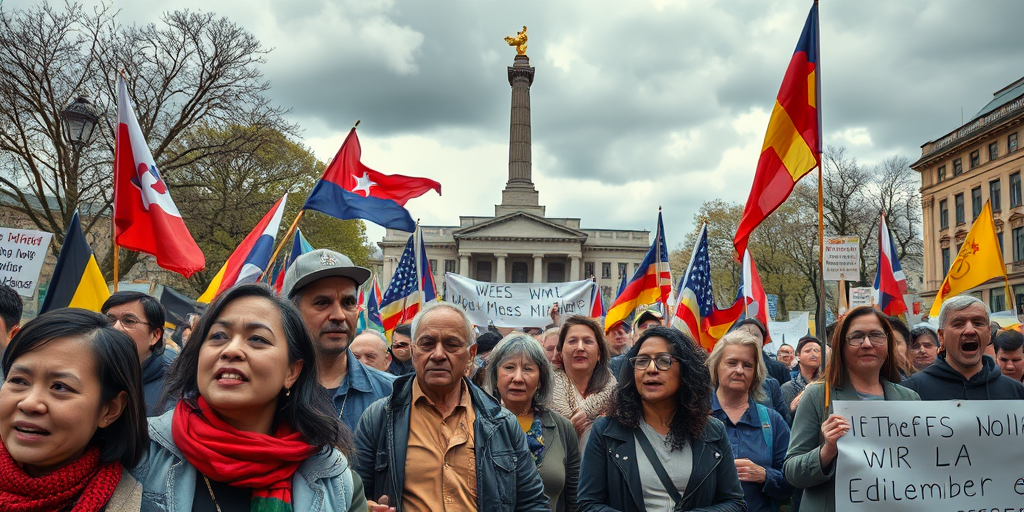Diversity Leaders List Celebrates Marriott and Hilton Brands
In a move that underscores the growing emphasis on diversity and inclusion within the corporate world, prominent brands Marriott and Hilton have been recognized as leaders in promoting diversity. This acknowledgment comes as part of an annual Diversity Leaders list, highlighting companies that are making significant strides in these areas. For residents and employees alike, notably in regions where these hotels operate extensively, such as many communities across the United States, this news presents a promising step forward in cultivating inclusive business environments.
Recognizing Diversity Efforts
The Diversity Leaders list aims to spotlight organizations that have embedded diversity and inclusion into their core business strategies. For Marriott and Hilton, this accolade reflects intensive efforts to foster environments where diverse voices are valued and heard.
Arlene Domingo, a spokesperson for Marriott, shared insights into their journey toward this achievement. “At Marriott, diversity and inclusion are not just policies; they are foundational to our operations. Our diverse team is pivotal in delivering unique guest experiences, and we are committed to advancing these values across all fronts,” she explained.
Similarly, Hilton has implemented a range of programs designed to support diversity. This includes comprehensive training for employees at all levels, mentorship initiatives for minority groups, and active recruitment policies aimed at increasing representation from varied backgrounds.
Local Impact: Fostering Inclusive Community Practices
The recognition of Marriott and Hilton on the Diversity Leaders list serves as an encouraging signal for their numerous properties in diverse cities and towns across the U.S. For communities where these hotels are significant employers, such as in urban centers and tourist destinations, it sends a clear message about the importance and benefits of diverse workplaces.
Stephen Caldwell, an economic analyst based in Baltimore, commented on the potential local impact. “These hotels are pillars in many communities, providing jobs and driving tourism. Their commitment to diversity can set an example for other local businesses, fostering a more inclusive economic environment,” he noted.
In communities with significant minority populations, this recognition has particular resonance. By prioritizing diversity, these brands not only enhance their organizational culture but also contribute positively to the community fabric.
Building on Previous Initiatives
This development aligns with previous efforts and discussions surrounding diversity in the workplace. Across the U.S., companies have faced scrutiny and pressure to improve their diversity metrics and create workplaces reflective of the country’s demographics. For Marriott and Hilton, this acknowledgement builds on years of developing initiatives and policies aimed at inclusivity.
In 2020, for instance, both companies pledged to increase diversity in their executive ranks, recognizing the need for leadership that mirrors their employee and customer base. These commitments have paid off, as evidenced by their inclusion in the Diversity Leaders list.
Future Implications for the Community
While recognition on the Diversity Leaders list is a commendable achievement, the true impact will be measured by continued effort and progress. If companies like Marriott and Hilton can maintain and build upon their diversity initiatives, they can influence wider industry standards and practices.
Dung Tran, director of Community Outreach at a local nonprofit in Seattle, emphasized the importance of sustained commitment. “It’s crucial for large corporations to not only talk about diversity but to implement meaningful, measurable changes. When big players like Marriott and Hilton lead by example, it creates space for authentic dialogue and progress within the community,” she asserted.
Balancing Perspectives: Measuring Success
Despite the positive trajectory, it is vital to maintain a balanced view of these achievements. Some experts highlight the need for transparency about how diversity metrics are set and achieved. Defining success in these terms often involves quantifiable measures, such as the diversity of leadership or the inclusiveness of company policies.
Critics argue that such lists, while valuable, must ensure they comprehensively evaluate a company’s practices rather than merely focus on surface-level changes. Encouragingly, ongoing dialogue about diversity can help refine these measures to better capture genuine progress.
Resources for Employees and Communities
For Marriott and Hilton employees, resources for diversity and inclusion are expanding. Programs related to professional development, mentoring, and cultural competency training are becoming more accessible. Additionally, both companies encourage feedback from employees to guide future diversity-related initiatives.
For community organizations and individuals interested in promoting diversity within their regions, collaborating with these brands could offer valuable opportunities. Engaging with them through local partnerships might provide further insights and strategies for implementing inclusive practices.
The recognition of Marriott and Hilton as diversity leaders serves as a significant milestone in the broader movement toward inclusive business practices. By demonstrating their commitment to diversity, these companies contribute not only to their own success but to enriching the communities where they operate—a fitting acknowledgment of progress and potential for future growth.







